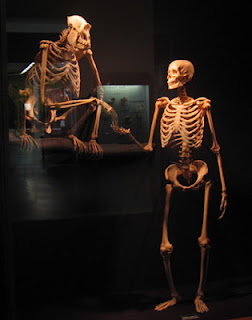The subject of war is a contentious issue. I can't name any other topic (mainly when the battle's happening now). As we are a tribal species, it is human nature to pick a side; our tribe or country must be the righteous one. Most arguments against the tribal view are attacked and ostracised from the tribe. We see this again; the current Russia/Ukraine war is one such example.
Our society is designed to only absorb a limited amount of information. As working folk, our time is extremely limited due to economic factors. When you operate a nine-hour job or two jobs, you'll only receive news from primary stream sources. As I've been writing about for years, the MSM is a tool for government propaganda. They create the "official" narrative, and those who oppose that official narrative are deemed "fake news."
Since the Biden administration came into office, censorship, specifically from democratic and establishment powers, has sought to quash any dissenting view other than their own. The notion of free speech is not canceling another because you disagree with them. Free speech is all speech except, of course, hate speech, which has no place in human discourse.
So when one presents a rational argument regarding the Ukraine crisis that goes contrary to the establishment narrative, one is immediately placed in the sin bin, silenced, sometimes forever. This isn't democracy but totalitarianism.
The Russia/Ukraine war is more nuanced and complicated than what's presented in the corporate press. It's not like Russia decided to invade Ukraine out of a vacuum. There is a historical context to consider, and putting the shoe on the other foot, so to speak. What has really led to this war? There are many factors to consider.
The US-backed coup in Ukraine in 2014. A pro-Moscow and left-leaning president was elected and was overthrown by far-right Ukrainian factions. Some eastern states like Donbas, Ukrainian Neo-Nazis have been fighting the Russian-speaking people in that region. Many atrocities have been committed, including sadistic assassinations on civilians.
In 2014, you can hear US officials discussing over the telephone the best Ukrainian government officials to put into office. This is the definition of a puppet government. The US has been interfering in Ukraine for over eight years. Then vice president Biden's son was given a $50.000 a month place on a Ukrainian gas company board. This is suspicious but reveals how far US tentacles have reached into Ukraine.
I really don't care what you think about President Putin (all current world leaders are terribly corrupt), but all Russians did not want Ukraine to become a member of NATO. There are already 5 US/NATO bases surrounding the Russian border. For Ukraine to become a member of NATO presents a clear threat to all Russians. Ukraine was the gateway for Hitler and Napoleon, causing 10's millions of Russian deaths.
Putting the shoe on the other foot notion: would you want Russian bases in Cuba, Canada, and Mexico? The US has been playing a dangerous game in Ukraine. For years Russia called a red line. A red line means you cannot cross it, or there will be dire consequences. That line was turning Ukraine into a NATO state. The Russians asked the US and the EU not to do this, pursuing it anyway. If any country should be blamed for this war, it is the US. and its allies.
I read this morning that the Ukrainian president, as a welcome gift to Joe Biden's presidency, closed three major Russian media stations in the country. This should give a glimmer into the machinations of the US in Ukraine and why Russia decided to invade.
For many years, as an anti-war activist, war is never the answer to any conflict. There's always a diplomatic solution. Did Russia have any other options aside from war? I believe more than likely they did. If you poke the docile bear enough, you're going to piss her off, and she'll retaliate.
As an added note: NATO should have been dismantled in the 90s when the Soviet Union crumbled. Instead, NATO is now used to defend international corporate interests. It is a tool for corporations.
The biggest irony is so-called liberals are currently claiming that an occupied country has the right to fight any occupying force. The US has been occupying Iraq, Afghanistan, and Syria for decades. Israel has been occupying Palestine for over 50 years. But I guess that's somehow different...it isn't.
During any war or conflict, it's much better to avoid emotional responses and attempt at logic and rationality.
When innocents are being killed, it's an almost impossible thing to do.















.jpg)